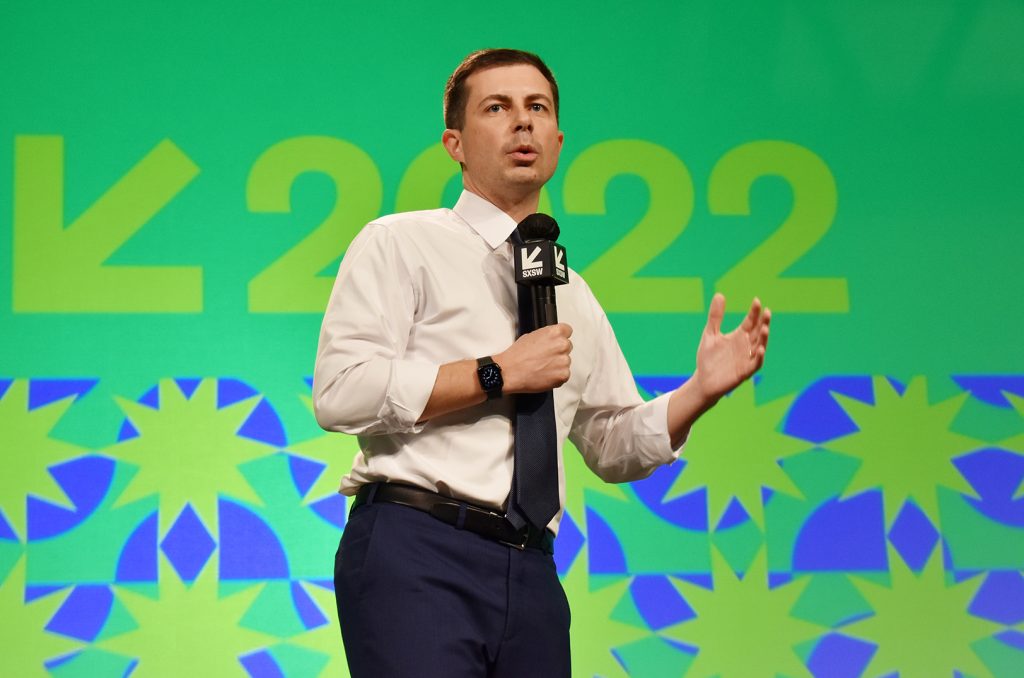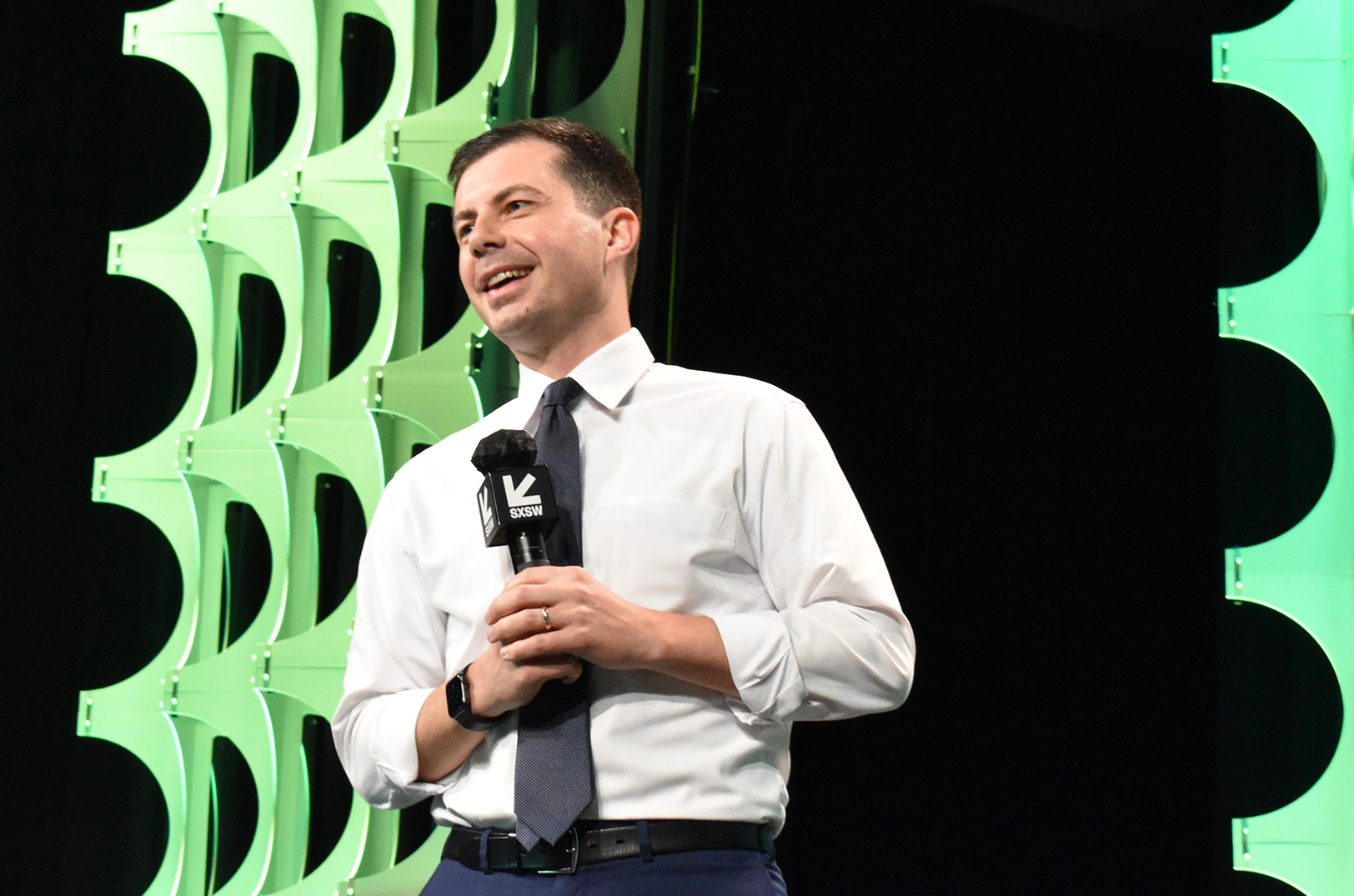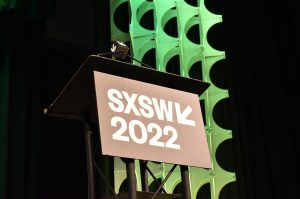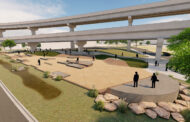Editor’s note: The following story is part of Startland News’ coverage of the SXSW conference in Austin. Click here to read more stories from the 2022 trip.
AUSTIN — The keys to solving climate change could already be in the ignition, Pete Buttigieg said, empowering a crowd of innovation leaders to sit in the passenger seat and enjoy the clean ride into the future.
“We need to start with the premise that climate change is real,” the U.S. transportation secretary told an audience gathered this week for a town hall-style session during the Austin-parked South by Southwest conference.
The conversation saw Buttigieg unpack the successes of public transportation in the city of Austin — noting specifically the city’s commuter rail system which began operating in 2010 — and pinpointing ways climate-concerned individuals gathered for the Volkswagen-sponsored session could (and should) take the future of transportation into their own hands wherever they live.
“Even though you can’t vote [you can] rightfully command a lot of attention by speaking up about these issues,” Buttigieg told a high school student who asked for his input on ways the Texas city could make transportation to and from her school — an unwalkable, 15-minute jaunt across I-35 — clean, safe, and equitable.
Similar advice was given to dozens of other constituents who begged the secretary to use his position within the Biden administration to double down on its fight against climate change, including the founders of PleasePete.com — an open letter hand delivered to Buttigieg on stage that called on him to visit coastal cities in Texas and Louisiana to see firsthand how fossil fuels have ravaged the seaside communities, they said.
“As Transportation Secretary, you have authority over the Maritime Administration, which is now reviewing requests from U.S. oil and gas exporters to authorize several proposed new offshore export terminals in the Gulf of Mexico,” the letter read.
“It is within the power of the Maritime Administration — and within your power — to reject these authorizations based on the devastating blow that these facilities would deal to our coastal communities, ecosystems, and climate. We urge you to do so. …”
As he responded, Buttigieg held firm in his belief that “every transportation decision is a climate decision.”
“The biggest sector — in terms of contributions to greenhouse gas emissions — is the transportation sector. Which means, in my view, that’s a challenge [to] us in transportation to try to be the biggest part of the solution,” he said, offering an empathetic response to the Please Pete letter and calling on local governments to use their power to dissipate the reality of climate change.
“So many of the most important decisions about this are local. It’s not just about the transportation technology — it’s about the way communities [and] neighborhoods are built,” Buttigieg said, drawing on his past experience as mayor of South Bend, Indiana, and reminding those who serve in local governments to leverage their positions for good.
“Most of the federal funding that goes through my department — the actual decisions are made at the state or local level, by design. We can encourage a lot of things,” he said.
“The real decisions are happening much closer to home. … So, making the case for the right decisions at the local level is incredibly important. And in a good city, a good community will have processes to include those voices. And if you don’t see those processes, you should fight for them.”

U.S. Transportation Secretary Pete Buttigieg speaking at SXSW; photo by Channa Steinmetz/Startland News
In Kansas City, steps in such a direction are already being taken, the KCMO Office of Environmental Quality told Startland News in response to the comments of Buttigieg.
“Kansas City has several green initiatives underway to reduce emissions and carbon footprint, build our climate resiliency, and protect our environment,” said Andy Savastino, chief environmental officer.
“The city wholeheartedly believes continuing to invest in public transit and alternative forms of transportation is a critical piece of the solution to combat climate change.”
Savastino went on to outline key initiatives taken by the city to date. Such efforts include:
- Kansas City’s role as the first municipality in the country to implement a zero-fare transit system. An initiative that remains part of the city’s proposed fiscal year 2022 to 2023 budget.
- Its successful expansion of the streetcar system and the miles of rail expected to be laid between now and 2025.
- A significant investment in the Vision Zero initiative which aims to make streets safer and more accessible, ultimately aiming to reduce traffic-related fatalities and incidents by 2030.
- Plans to build and complete protected bicycle and streets facilities that can provide safe, multimodal options for people to traverse the city in greener and more sustainable ways. 15 miles of protected bike lanes are expected to be completed by the end of the year.
- Continued partnerships with area agencies and municipalities that prioritize regional transportation opportunities and solutions that make communities safer, more accessible, and better connected.
Click here to learn more about the city’s draft climate protection and resiliency plan.
A Startland News request for comment from RideKC about the city’s transportation future — notably represented by the KC Streetcar — was not immediately returned. $224 million dollars in federal funding has been allocated to expand the city’s streetcar system.
Similar contributions will continue to be made around the country, Buttigieg said — so long as the voices of the nation’s communities are raised.
“We’re going to make sure that when a project comes our way that — for example — can connect a campus to a downtown or a home to a workplace or a community to another community — and we can do it in a way that cuts emissions and that meets our findings, that’s going to much more competitive than one that doesn’t,” he said.
“We’re going to [make clear that] $660 billion in transportation funding goes out — and then back it up with some of the work that’s happening in other departments like the Department of Energy which is working to upgrade the [power] grid.”
This story is possible thanks to support from the Ewing Marion Kauffman Foundation, a private, nonpartisan foundation that works together with communities in education and entrepreneurship to create uncommon solutions and empower people to shape their futures and be successful.
For more information, visit www.kauffman.org and connect at www.twitter.com/kauffmanfdn and www.facebook.com/kauffmanfdn






































